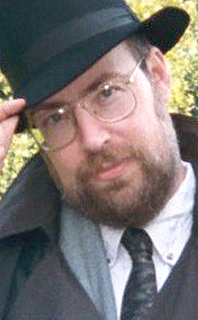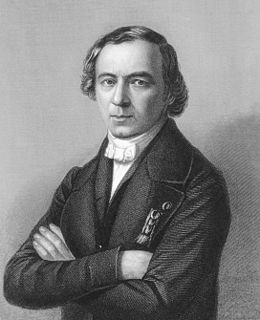A Quote by Napoleon Bonaparte
In order to govern, the question is not to follow out a more or less valid theory but to build with whatever materials are at hand. The inevitable must be accepted and turned to advantage.
Related Quotes
It must be conceded that a theory has an important advantage if its basic concepts and fundamental hypotheses are 'close to experience,' and greater confidence in such a theory is certainly justified. There is less danger of going completely astray, particularly since it takes so much less time and effort to disprove such theories by experience. Yet more and more, as the depth of our knowledge increases, we must give up this advantage in our quest for logical simplicity in the foundations of physical theory.
What the public does is not to express its opinions but to align itself for or against a proposal. If that theory is accepted, we must abandon the notion that democratic government can be the direct expression of the will of the people. We must abandon the notion that the people govern. Instead, we must adopt the theory that, by their occasional mobilizations as a majority, people support or oppose the individuals who actually govern. We must say that the popular will does not direct continuously but that it intervenes occasionally.
Men's souls are crooked and unsound things, not good materials out of which to build friendships, families, households, cities, civilizations. But good or no, these things must be built, and we must craft them with the materials at hand, and make as strong and stubborn redoubt as we can make, lest the horrors of the Night should triumph over us, not in some distant age to come, but now.
The mathematical framework of quantum theory has passed countless successful tests and is now universally accepted as a consistent and accurate description of all atomic phenomena. The verbal interpretation, on the other hand - i.e., the metaphysics of quantum theory - is on far less solid ground. In fact, in more than forty years physicists have not been able to provide a clear metaphysical model.
Is evolution a theory, a system, or a hypothesis? It is much more it is a general postulate to which all theories, all hypotheses, all systems must henceforward bow and which they must satisfy in order to be thinkable and true. Evolution is a light which illuminates all facts, a trajectory which all lines of thought must follow this is what evolution is.
It is not enough for theory to describe and analyze, it must itself be an event in the universe it describes. In order to do this theory must partake of and become the acceleration of this logic. It must tear itself from all referents and take pride only in the future. Theory must operate on time at the cost of a deliberate distortion of present reality.
Creationists reject Darwin's theory of evolution on the grounds that it is "just a theory". This is a valid criticism: evolution is indeed merely "a theory", albeit one with ten billion times more credence than the theory of creationism - although, to be fair, the theory of creationism is more than just a theory. It's also a fairy story. And children love fairy stories, which is presumably why so many creationists are keen to have their whimsical gibberish taught in schools.
Freud was a hero. He descended to the "Underworld" and met there stark terrors. He carried with him his theory as a Medusa's head which turned these terrors to stone. We who follow Freud have the benefit of the knowledge he brought back with him and conveyed to us. He survived. We must see of we now can survive without using a theory that is in some measure an instrument of defence.










































